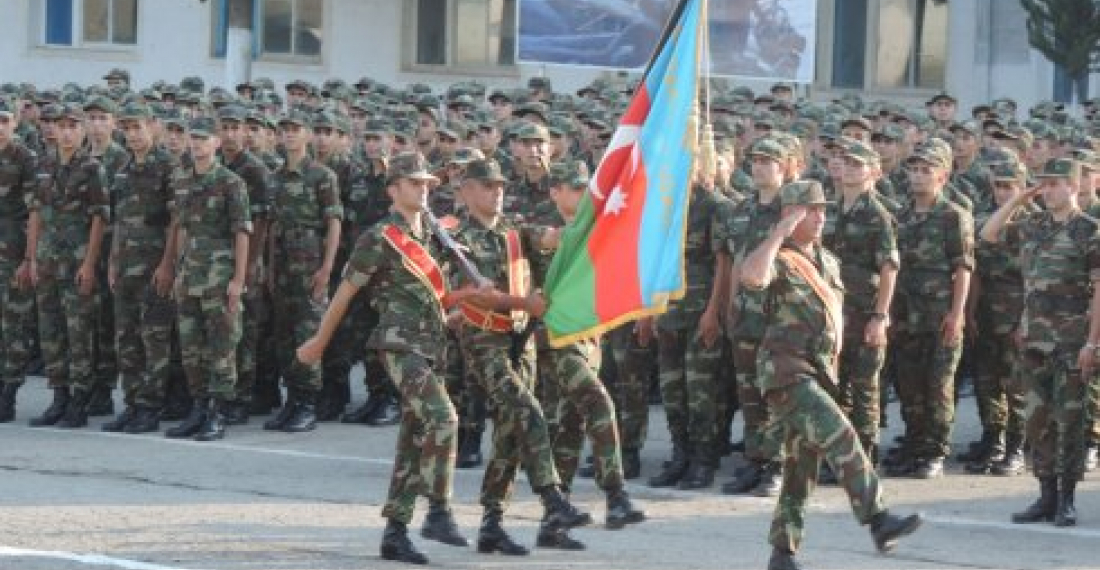Азербайджанская неправительственная организация, базирующаяся в Германии, опубликовал статистические данные о потерях в азербайджанской армии за последние два десятилетия.
Как сообщает Прикаспийский институт оборонных исследований (CDSI), цифры в исследовании, основаны на результатах мониторинга отчетов официальных органов, средств массовой информации и социальных сетей в Интернете.
CDSI сообщает, что в период 2003-2016 вооруженные силы Азербайджана потеряли по меньшей мере 1,044 солдата. Из них 365 "были убиты армянскими пулями и снарядами", а 679 человек погибли в небоевых условиях.
За тот же период более 800 солдат были ранены или получили ранения.
НПО сообщает, что, по приблизительным данным, с мая 1994 года, когда в силу вступило соглашение о прекращении огня с Арменией, общие потери в сфере обороны и безопасности Азербайджана составили более 4000 человек.
Прикаспийский институт оборонных исследований также сообщает о том, что в 2016 году Азербайджан потерял 147 солдат, а Армения - 165. Большинство из них погибли во время тяжелой боевых столкновений между армянскими и азербайджанскими силами в зоне карабахского конфликта в апреле 2016 года.
По официальным данным, потери с азербайджанской стороны составили 92 человека, а потери с армянской - 77 человек. Но вместе с тем в докладе отмечается, что, вероятно, потери с обеих сторон были больше.
В 2016 году Азербайджан потерял 147 военнослужащих, в том числе 109 в боевых условиях и 38 в небоевых условиях. Среди небоевых потерь: 4 военнослужащих погибли в дорожно-транспортных происшествиях, 10 покончили жизнь самоубийством, 5 погибли в результате болезни, 3 умерли в результате действий, совершенных по неосторожности, и 3 умерли по неизвестным причинам. 33 погибших являлись офицерами.
НПО также сообщает о том, что в прошлом году было убито 18 гражданских лиц и еще 26 получили ранения в результате конфликта.
Потери Армении составили 165 военнослужащих, в том числе 112 в боевых условиях и 53 в небоевых. Среди небоевых потерь: 13 человек погибли в результате дорожно-транспортных происшествий, 12 совершили самоубийство, 22 были убиты своими сослуживцами, 4 умерли в результате несчастных случаев (поражение электрическим током или при неизвестных обстоятельствах) и 2 умерли в результате болезней.
Вооруженные силы Армении потерял 27 офицеров.
В 2016 году на линии фронта были убиты около 20 армянских добровольцев и еще 15 получили ранения.
Грузинские вооруженные силы потеряли 6 человек. Один из них умер от вируса H1N1, 3 умерли в результате различных несчастных случаев и 2 погибли в дорожно-транспортных происшествиях. Один из погибших был майором, а остальные рядовыми солдатами. Все они являлись военнослужащими Министерства обороны.
CDSI было создано в Германии азербайджанским экспертом Джасуром Сумеринли в 2014 году.
источник: commonspace.eu по материалам CDSI
фот: Военный парад в Азербайджане (фото из архива).







